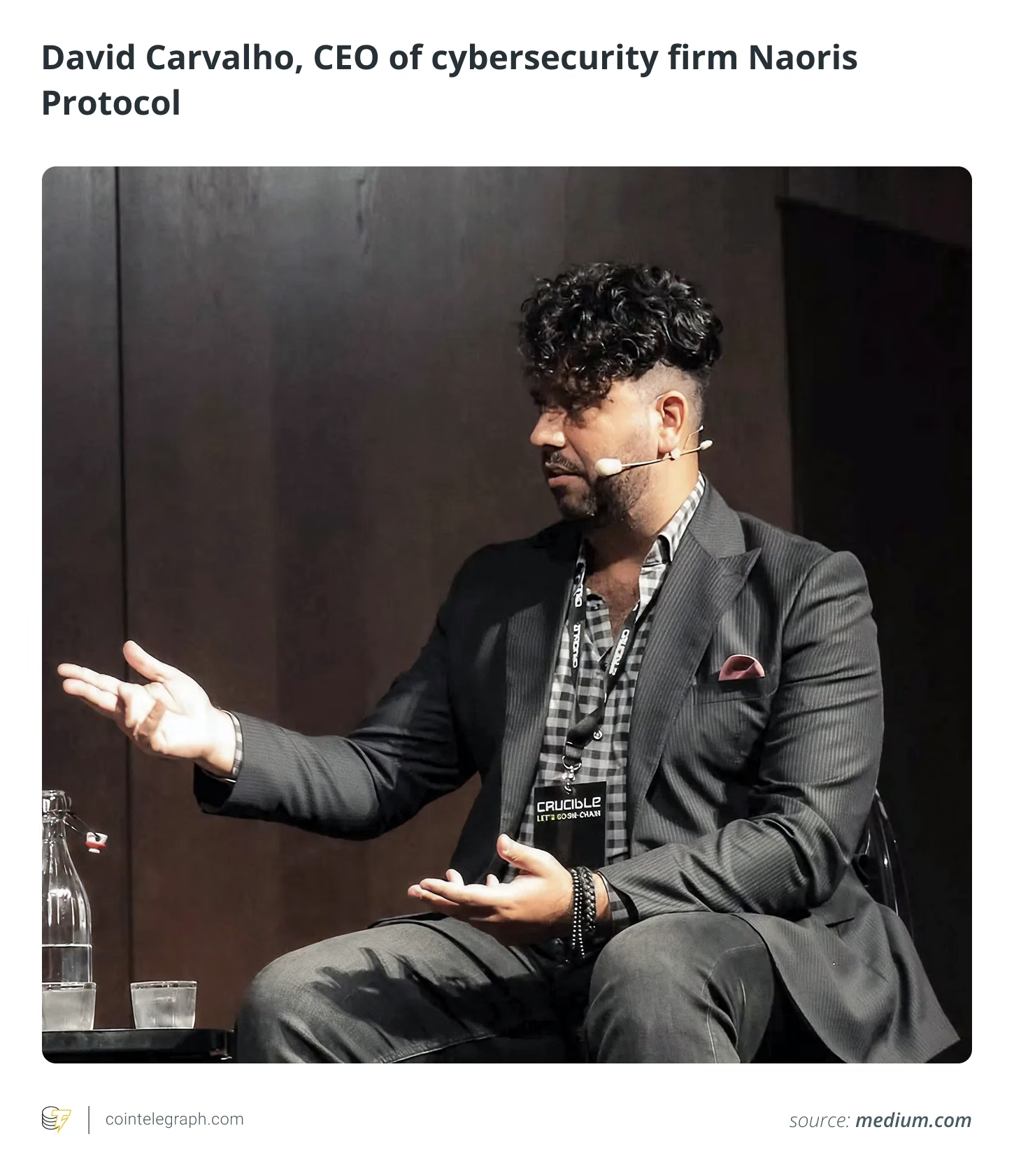Quantum threat to Bitcoin: Harvest now, decrypt later
Quantum computers could quietly break Bitcoin, and a former hacker says the countdown has already begun.
David Carvalho, a one‑time teenage spam hacker turned CEO of cybersecurity firm Naoris Protocol, warns that the blockchain’s cryptographic defenses may not withstand the coming wave of quantum computing and AI‑driven breakthroughs.
At the center of his warning is a tactic known as “harvest now, decrypt later,” where attackers stockpile encrypted Bitcoin transactions today, waiting for future machines powerful enough to crack the private keys.
Carvalho’s story adds weight to his warnings. He started hacking at 13, later advising NATO and Fortune 500 companies before founding Naoris Protocol. Now he’s sounding the alarm that Bitcoin vulnerabilities to quantum computing are real; its SHA‑256 and Elliptic Curve Digital Signature Algorithm (ECDSA) protections could face a silent collapse of Bitcoin systems if the industry hesitates on upgrades.
Did you know? Google’s Willow quantum chip demonstrated an astonishing speed benchmark, solving problems in minutes that would take the fastest classical supercomputers around 10²⁵ years.
Bitcoin’s vulnerabilities to quantum computing
Bitcoin’s security relies on two cryptographic pillars: SHA‑256, which protects the mining process and transaction integrity, and ECDSA, which secures private keys behind signatures considered unbreakable by today’s machines.
Under classical computation, brute‑forcing either system would take longer than the age of the universe, but the quantum threat to Bitcoin changes that equation.
Algorithms like Shor’s could one day allow a powerful quantum computer to derive a private key from a public key in minutes, making it possible to hijack funds from any exposed address before a transaction even settles.
Security experts stress that cryptocurrency security doesn’t mean “safe until Q‑Day.” State actors and cybercrime groups are already harvesting data for the harvest now, decrypt later crypto risk, quietly building archives they hope to unlock when hardware catches up.
The mix of AI in crypto and quantum technology may speed up this timeline dramatically. Carvalho argues that AI could help identify weak points in blockchain cryptography, while quantum…
Click Here to Read the Full Original Article at Cointelegraph.com News…
